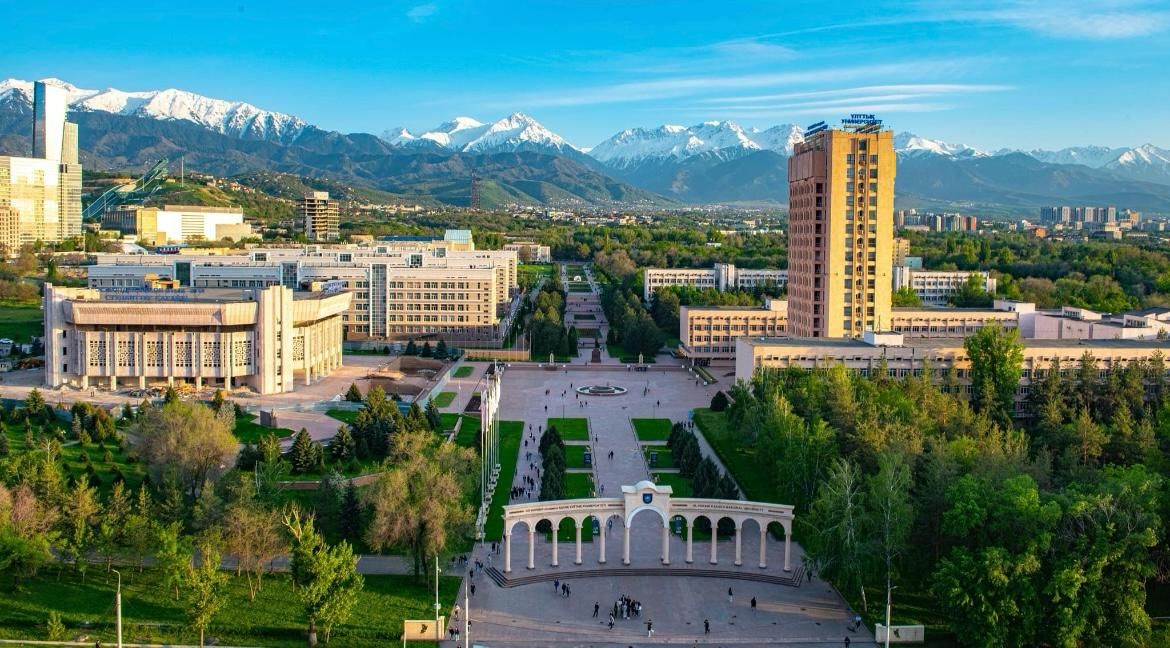The Department of Middle East and South Asia at Al-Farabi Kazakh National University recently hosted a distinguished event titled “Iqbal’s Readings” to celebrate Allama Muhammad Iqbal Day. This event brought together esteemed guests and scholars to honor the enduring legacy of the legendary philosopher-poet, who is celebrated for his profound impact on Pakistan and his influential ideas that resonate globally.
The gathering was graced by the presence of several prominent figures. Ms. Rizwana Qazi, the Consul of Pakistan to Kazakhstan, and Mr. Walid Iqbal, grandson of Allama Iqbal, attended as special guests. Their participation underscored the significance of the event and highlighted the close ties between Kazakhstan and Pakistan. Additional notable guests included Dr. Abdul Iqbal Rafiqui, Director of the Iqbal Academy, and Muhammad Murtaza Noor, National Coordinator of the Inter-University Consortium for the Promotion of Social Sciences in Pakistan. Their contributions added depth and context to the discussions, showcasing the multifaceted influence of Iqbal’s work.
Dr. Em Natalia Borisovna, Dean of the Oriental Studies Faculty at Al-Farabi Kazakh National University, warmly welcomed all attendees and expressed her admiration for Iqbal’s far-reaching philosophical and literary contributions. She emphasized the importance of such events in fostering cross-cultural understanding and academic collaboration.
During the ceremony, speakers highlighted Iqbal’s profound influence on Pakistan’s intellectual and political landscape. His philosophy, infused with a vision of self-reliance, unity, and spiritual awakening, laid the groundwork for the nation’s ideological identity and continues to inspire generations. The guests spoke passionately about how Iqbal’s poetry and philosophy transcend national borders, offering timeless reflections on humanity, justice, and the pursuit of knowledge.
One of the most moving parts of the event was the student performances. Students recited and performed some of Iqbal’s most famous poems, breathing life into his powerful words. These renditions provided the audience with a vivid reminder of Iqbal’s emotional and philosophical depth, enhancing the celebration of his work. The heartfelt performances served to connect the younger generation with Iqbal’s legacy, allowing them to appreciate the timeless relevance of his message.
The “Iqbal’s Readings” event was more than just a tribute; it was a bridge between cultures, reinforcing the shared cultural and intellectual heritage of Kazakhstan and Pakistan. It underscored the strong historical and academic ties between the two countries, highlighting how figures like Iqbal continue to inspire and forge bonds of understanding and mutual respect. His poetry’s universal themes, which advocate for freedom, perseverance, and a spiritual connection with one’s purpose, were a focal point of the discussions, reminding attendees of the profound lessons embedded in his work.
In conclusion, the event at Al-Farabi Kazakh National University was a celebration of Allama Iqbal’s life, legacy, and lasting impact. It brought together scholars, diplomats, and students in an atmosphere of respect and admiration, reaffirming the cultural and intellectual bonds between Kazakhstan and Pakistan. Through the shared commemoration of Iqbal’s contributions, “Iqbal’s Readings” became a testament to the philosopher-poet’s enduring influence and the powerful connection between the two brotherly nations.
I am an experienced content writer with a passion for crafting engaging and impactful content across various platforms. Skilled in audience research, storytelling, and SEO optimization. I am proficient in creating clear, concise, and compelling copy that resonates with readers. Strong ability to adapt tone and style to suit diverse audiences and brand voices. Dedicated to delivering high- quality content that drives results and enhances brand visibility.


Comments are closed, but trackbacks and pingbacks are open.